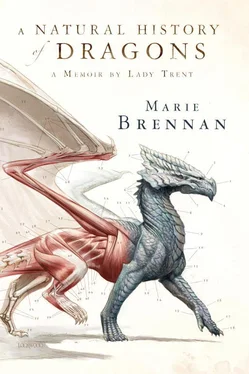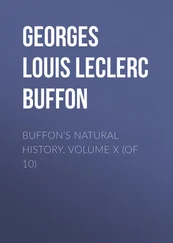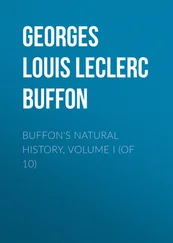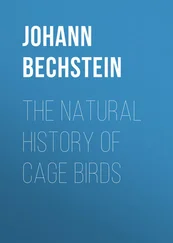Jim goaded his horse forward, and mine followed by instinct, wanting (as horses do) not to be left alone. Soon we were galloping across the rocky slope, at a pace far faster than Mama would have deemed safe. The wolf-drake was a distant figure, already well ahead, and only the quick thinking of some of the local men kept it from escaping us entirely; they blocked its path with fire and sent it veering southward again, whereupon we angled across to intercept it.
The dogs were running as if to avenge the death of their brother, the wolfhounds leading far in the front. They harried the wolf-drake back and forth while hunting horns gave their cries and directed the groups of horsemen about. All too soon, however, we reached another patch of the woodlands, and I understood why they had initially chosen that isolated copse in which to lay their bait: once in the main stretch of woods, finding and trapping the drake would be much more difficult.
Despite the best efforts of the hunters and hounds, the creature reached the shelter of the woods. One of Papa’s huntsmen, a fellow as stony-faced as the hills around us, spat onto the ground, and I reminded myself that he did not know he was in the presence of a lady. “Won’t run so fast now,” he said, eyeing the shadows into which it had vanished. “But we’ll have a devil of a time digging it out.”
This afforded us our first chance to catch our breath since the chase had begun. Some of the men had brief, incomprehensible conversations out of which the only information I could sift was that we were now to use certain techniques common to boar-hunting. Since I knew no more of this than I did of wolf-hunting, the change did not mean much to me, but the mastiffs were brought up and the wolfhounds called back. The situation called now for strength more than speed.
The pines in this area were old and tall enough that we could often ride beneath their branches without ducking, and the carpet of their needles meant the ground was startlingly bare, except where a tree had fallen and created a gap in which other plants might grow. I soon lost sight of much of the hunt, but Jim stayed with me, and the rest of our group to either side. Through the trees we heard occasional shouts, and blares of the horns telling us nothing had been sighted yet.
Then a frenzy of barking… then nothing.
We paused where we were, as much to consider our path as anything else, for a tangle of underbrush blotted the ground in front of us. I looked at Jim, and he back at me. “I should take you home, miss,” he said in a voice too low for others to hear, though no one was nearby. “This really isn’t safe anymore.”
For the first time, I felt like agreeing. My entire purpose in coming had been to see the drake alive and at first hand, rather than as a dead trophy, but I understood now how unlikely that was. The blurred frenzy that savaged one of the dogs might well be the best glimpse I got all day.
As I pondered this, Jim suddenly shouted and drove his horse straight at me.
Bossy reared up and shrieked—a dreadful sound—and then lurched over sideways, spilling me from my saddle. She missed falling on my leg by a hairbreadth. I scrambled to a sitting position in the dry needles, my breath knocked out of me, and Jim half whimpered, half groaned in a way I had never heard before.
What drew my attention, though, was a long, rumbling snarl.
In lands where wolf-drakes are still numerous, it is common knowledge that they prefer female prey. Unfortunately, this was a detail we had forgotten, and which Sir Richard Edgeworth had not included in his otherwise splendid book.
I looked across at the wolf-drake, crouching atop a large outcropping of stone. Its scaled hide was a dull brown that fitted in well with our surroundings, and its eyes a disturbing crimson. The low-slung body featured powerful legs ending in scythelike claws and a long, flexible tail that moved hypnotically back and forth, like a cat’s. Just behind its shoulders, a pair of vestigial wings shifted and settled.
I could not look away from it. My right hand groped blindly in the needles for the gun I had dropped, but did not find it. Panic built in my throat. The wolf-drake’s claws tightened on the stone. I fumbled with my left hand, reaching out and further out, and there! My fingers wrapped around the stock of a gun. I dragged it toward me, raising it as I had seen the men do, and the wolf-drake tensed, and as I brought the rifle up it leapt toward me and only as my finger tightened on the trigger did I remember, we had not loaded my gun.

THE WOLF-DRAKE
A deafening bang went off in my ears, and the wolf-drake landed just to the side of me, claws shearing through shirt and shoulder like knives through butter.
I screamed and rolled away, dropping the gun again, the gun that must have been Jim’s, because it certainly had been loaded. What had happened to Jim? The wolf-drake was pivoting to face me again, its bulk more agile than it looked, and though there was blood on its hide now—I had struck it a glancing blow—it was far from defeated.
Here I should write something heroic, but in truth, the thought that went through my head was: This is what you came for, and it is the last thing you will ever see.
More gunshots went off, these not directly in my ears but still loud enough that I screamed again and curled into a ball, terrified that the shots would hit me, that the wolf-drake would leap again, that one way or another I was going to die.
Instead I heard a frenzy of snarling, a horse’s agonized scream, men shouting and horns blowing, and then, after a moment or two, a blessed sound I recognized, for it was the same horn call they used when returning home from a successful hunt: prey down.
Then there were men around me, and I uncurled only to realize that my cap had fallen off at some point in the struggle, and my hair come loose from the ribbon that had bound it atop my head. There seemed to be brown strands everywhere, waving like banners as if to advertise, Here! Look! A girl!
Which was, more or less, what I heard the men saying. (But with rather more profanity.)
More shouts, and then my father was there, staring down at me in horror: the minor pagan god, appalled at what his worshipper had done. I stared back at him, I think; this is the point at which things become somewhat muzzy, for I know I went into shock. Papa picked me up, and I asked about Jim, but no one answered me. Soon I was on Papa’s horse, still cradled in his arms, riding out of the woods and across the rocky hillside to a shepherd’s cottage.
A physician had accompanied the hunt, to minister to both the dogs and the men; he arrived shortly after we did. I was not his first patient, though. I heard Jim’s voice moaning from the other side of the small room, but I could not see him through the press of other people.
“Don’t hurt him,” I said to no one in particular, though rationally I knew the physician must be trying to help him. “Don’t blame him. I made him do it. And he protected me; he got in the way when the wolf-drake attacked.” This I had pieced together after the fact.
The injuries Jim suffered through his heroic move were one of two things that kept him from being ignominiously sacked. The other—though I can take little pride in it—was my tireless defense, insisting that he was not to be blamed for bringing me on the hunt. Now, far too late, my guilt boiled up, and I fear I kept harping on the point long after my father had agreed to keep him on.
All of that came later, though. Once finished with Jim, the physician came to me, and banished everyone but my father and the now-sleeping Jim out of the hut, for the wound was on my shoulder and it would not be appropriate for others to be there while it was bared. (This I thought foolish, even at the time, for young ladies may wear off-the-shoulder dresses, which show just as much flesh as his ministrations did.)
Читать дальше













